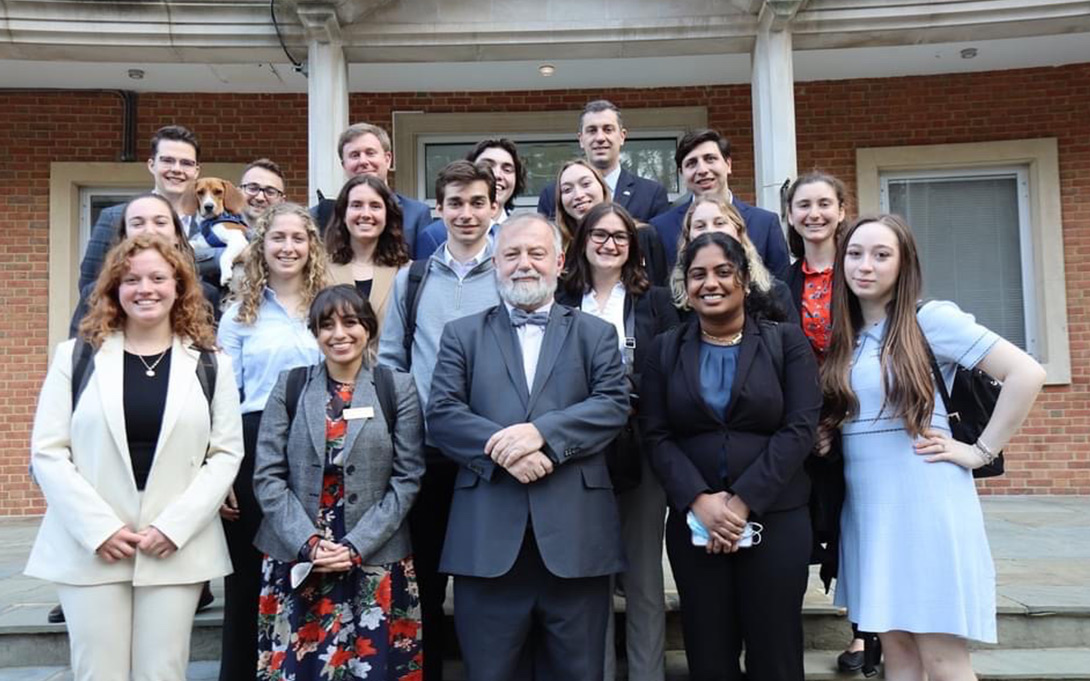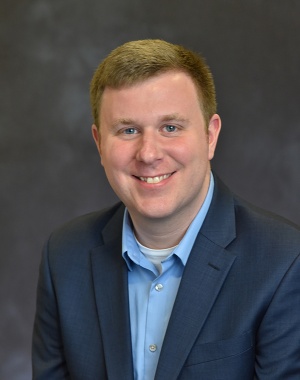
The undergraduate students in PubPol 480: Global Engagement Seminar had waited all semester for Spring Break – but they weren’t packing bathing suits and flip flops. Instead, they packed blazers and dress shoes. They were heading to Washington, D.C. to meet with ambassadors, leading think tanks, and other foreign policy experts.
“My favorite part was being able to meet with foreign policy experts, have an opportunity to engage with them on pertinent foreign policy issues, and learn about the Russian invasion of Ukraine and what these leading thinkers have to say about that,” Michael Cardamone (BA ‘23) said about the trip. “It was a very unique experience to be able to talk to people who not only have an important role, whether they're an ambassador or diplomat or a leading think tanker, but they also have a huge voice in terms of policy directions going forward on so many issues.”
The meetings with the policy experts were arranged by Professor John Ciorciari, director of the International Policy Center and Weiser Diplomacy Center, Dan Ellis, manager of the Global Engagement Program, and Zalma Valencia, administrative assistant for the International Policy Center and Weiser Diplomacy Center. Originally, the class planned to travel to Brussels, Belgium, but the COVID-19 pandemic upended those plans. So, the three worked hard to put together a packed itinerary in D.C. that corresponded to the students’ interests.
Prior to Spring Break, the class was broken up into three groups: European immigration policies, security with a focus on Ukraine, and democratic backsliding with a focus on Hungary. By the end of the semester, using their research completed before Spring Break and the knowledge they learned in D.C., the groups will produce a memo on the topic.
“It was really cool to see how the embassies would answer the same questions compared to think tanks. They could give it to you more straight,” Julia Fadanelli (BA ‘23) said. “It was interesting to see the embassies’ reactions that were fueled by their connection to their country or their connection to the policies that they have. It showed that you have to think about who your sources are and how to compare them. It’ll be interesting to include those nuances and approaches to the question in the final memo.”
Fadanelli was in the group focused on security in Ukraine. Her group had to be dynamic with their questions since the situation in Ukraine was rapidly changing.
“The trip took place just days after Russia’s invasion of Ukraine. The situation in Ukraine was changing daily (or even hourly), and students successfully adapted their questions to stakeholders based on rapidly-changing news,” Ellis said. “They also reframed questions based on previous stakeholder meetings or identified new questions based on the content of those previous meetings. In short, our students posed sharp, thoughtful questions for European policy stakeholders.”
Both Cardamone and Fadanelli reported learning so much more than the information necessary for the memo.
“One of the speakers that we met emphasized how diplomacy is very personal and how in a diplomatic relationship there needs to be a win for both sides,” Cardamone said. “I think that was a big moment for me in understanding that when you're trying to deal with these issues, when you're trying to come up with policy solutions to something, there needs to be an advantage for everyone involved in order to actually have a feasible outcome.”
It was a successful week in D.C. for these undergraduate students, according to Ciorciari.
“It’s not easy to meet senior officials and press them on sensitive topics like refugee policy and democratic decay,” he said. “Our students met that challenge very well, asking tough but respectful questions on some of the most important issues facing Europe."
